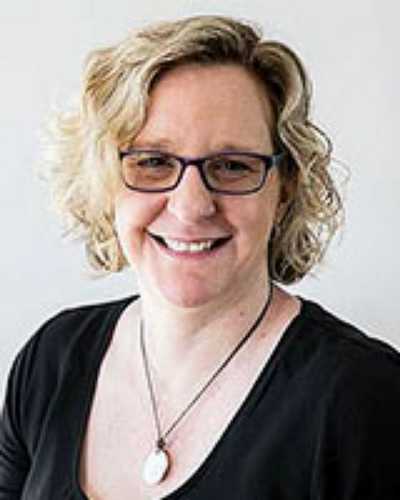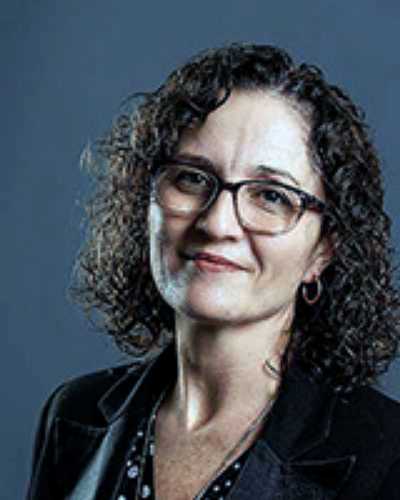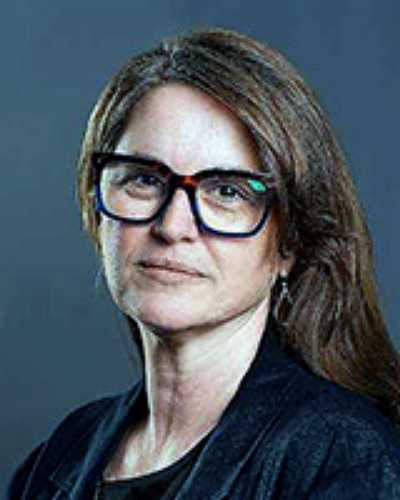Profiles And Contributions To This Article
Rural and remote health care: the case for spatial justice

qualifications: Master Health Science (Education)
contribution: Study conception and design, Acquisition of data, Analysis and interpretation of data, Drafting of manuscript
position: Lecturer in Occupational Therapy
Karen Hayes is an occupational therapy academic with a mission to improve rural health and occupational therapy services in Australia, and across the globe. With over two decades of experience as an occupational therapist, she's seen firsthand the challenges faced by rural people and communities. Karen has a strong fairness and equality, driving her to address the healthcare gap between rural and urban areas, and believes in the power of occupational therapy to empower communities and build resilience. She aims to partner with rural people to develop a rural workforce through teaching, research, and advocacy. Her approach is all about working together, understanding people's needs, and striving for excellence. Through her work in research, teaching, and advocacy, Karen aims to ensure everyone, no matter where they live, gets the care they deserve.

qualifications: PhD
contribution: Study conception and design, Acquisition of data, Analysis and interpretation of data, Drafting of manuscript, Critical revision
position: Director of Academic Program – Occupational Therapy

qualifications: PhD
contribution: Study conception and design, Acquisition of data, Analysis and interpretation of data, Drafting of manuscript, Critical revision
position: Associate Dean Learning and Teaching
Associate Professor Rosalind Bye has been an occupational therapy academic and researcher for over 30 years, contributing to the growth of the occupational therapy profession in Australia through her work. Ros currently holds leadership roles in the School of Health Sciences, Western Sydney University, NSW.
Search
Register Now
News & Events
Mortality of COVID-19 patients in a community hospital in rural Poland
article
Rural proofing: lessons from OECD countries
article
WONCA East Mediterranean Region Conference 2025, 8 –10 May 2025, Tangier, Morocco
web link
4th International Indigenous Health and Wellbeing Conference 2025, 16–19 June 2025, Kaurna Country, Adelaide, Australia
web link
CATSINaM Regional Congress 2025, 2–4 July 2025, Kaurareg Country, Waibene (Thursday Island)
web link
2025 Gayaa Dhuwi Conference, 28–29 August 2025, Garramilla (Darwin), Australia
web link
National Tribal Health Conference, 7–12 September 2025, Chandler, AZ, USA
web link
2025 National First Nations Mental Health & Suicide Prevention Conference, 15–17 September 2025, Gold Coast, Australia
web link
10th Rural & Remote Health Scientific Symposium, 8 & 9 October 2025, Alice Springs, NT, Australia
web link
Indigenous Wellbeing Conference 2025, 20–21 October 2025, Meanjin (Brisbane), Australia
web link
World Indigenous Suicide Prevention Conference 2026, 17–19 September 2026, Kirikiriroa (Hamilton), New Zealand
web link
WONCA Asia Pacific Region Conference 2025: Primary Care Transformation; Implementing High-value, High-quality Care!, 24–27 April 2025, Busan Korea
web link
9th European Young Family Doctors' Movement (EYFDM Forum), 25–27 April 2025, Grande Région
web link
Hauora Taiwhenua Rural Health Network's National Rural Health Conference, 1–3 May 2025, Ōtautahi | Christchurch, Aotearoa New Zealand
web link
The Global Advanced Practice Summit: Improving Healthcare and Building Global Collaboration, 13 May 2025, online
web link
NRHA 30th Health Equity Conference, 19–20 May 2025, Atlanta, GA, USA
web link
NRHA 48th Annual Rural Health Conference, 20–23 May 2025, Atlanta, GA, USA
web link
2025 International Rural Nursing Conference, 27–30 May 2025, Arlington, TX, USA
web link
BC Rural Health Conference 2025, 6–8 June 2025, Prince George, BC, Canada
web link
4th International Indigenous Health & Wellbeing Conference 2025, 16–19 June 2025, Adelaide Convention Centre, Kaurna Country, Australia
web link
14th EURIPA Rural Health Forum. Rural Reformation: Meeting Wellbeing and Healthcare Needs in Rural Communities, 26–28 June 2025, Saxony-Anhalt, Germany
web link
Rethinking Remote 2025: Scotland's Rural Health Conference
web link
16th National Allied Health Conference: Empowering lives, shaping healthcare, 11–14 August 2025, Adelaide, Australia
web link
WONCA World Conference 2025: New Vision for Primary Health Care and Sustainable Development, 17–21 September 2025, Lisbon, Portugal
web link
NRHA 23rd Rural Health Clinic Conference, 23–24 September 2025, Kansas, MO, USA
web link
2025 Health Leadership Congress, 22–24 October 2025, Darwin, Australia
web link
Rural Mental Health Conference 2025 (RMHC25), 5–7 November 2025, Hobart, Tasmania, Australia
web link
4th EURACT Medical Education Conference, 23–25 April 2026, Iasi, Romania
web link
9th WONCA Africa Region Conference 2026, 10 & 11 September 2026, Gaborone, Botswana
web link
18th National Rural Health Conference, 14–17 September 2026, Adelaide, SA, Australia
